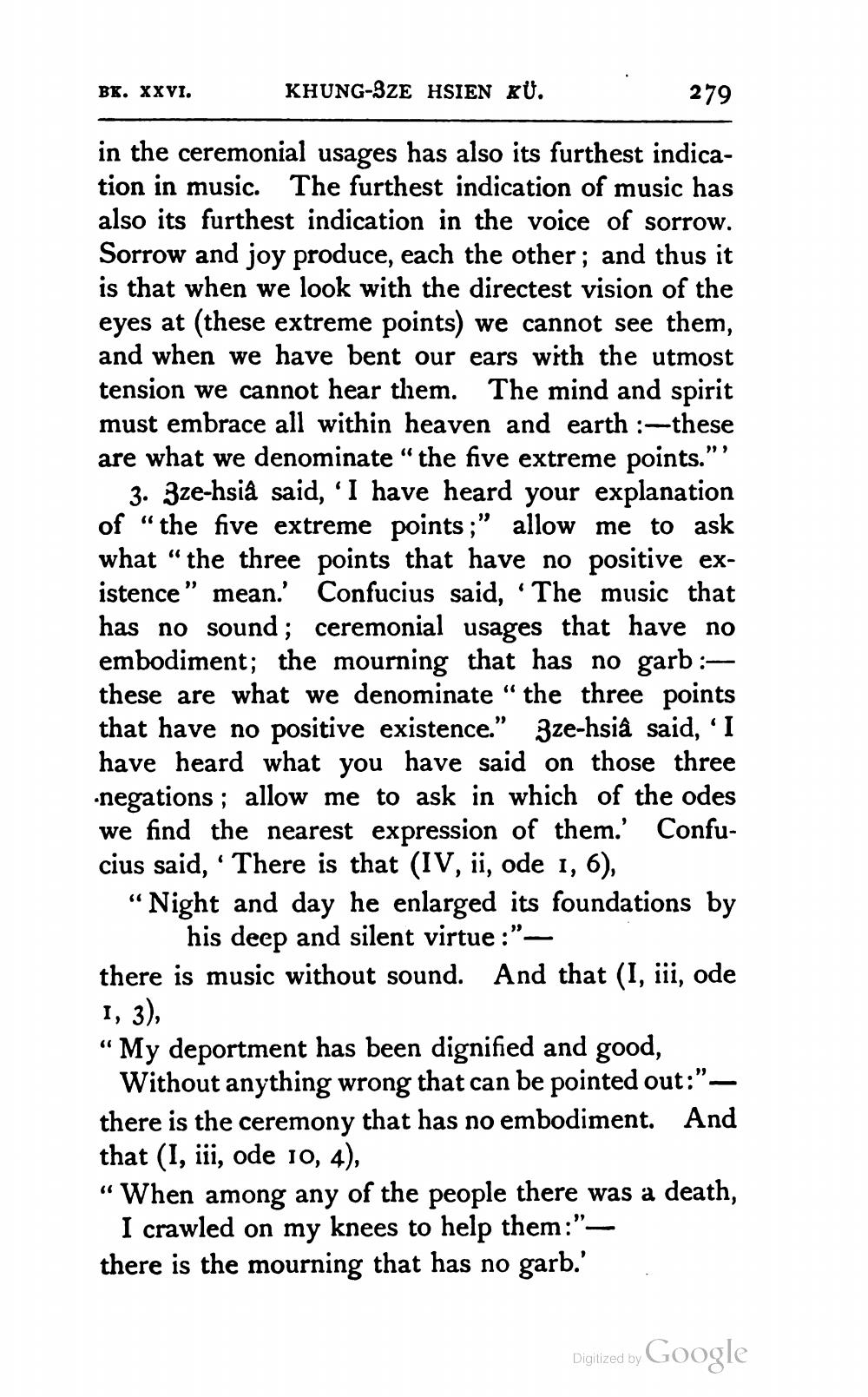________________
BK. XXVI.
KHUNG-SZE HSIEN KÜ.
279
in the ceremonial usages has also its furthest indication in music. The furthest indication of music has also its furthest indication in the voice of sorrow. Sorrow and joy produce, each the other; and thus it is that when we look with the directest vision of the eyes at (these extreme points) we cannot see them, and when we have bent our ears with the utmost tension we cannot hear them. The mind and spirit must embrace all within heaven and earth :--these are what we denominate “the five extreme points."
3. 3ze-hsiâ said, 'I have heard your explanation of “the five extreme points;" allow me to ask what "the three points that have no positive existence" mean. Confucius said, 'The music that has no sound; ceremonial usages that have no embodiment; the mourning that has no garb :these are what we denominate “the three points that have no positive existence." Zze-hsiâ said, I have heard what you have said on those three negations; allow me to ask in which of the odes we find the nearest expression of them.' Confucius said, 'There is that (IV, ii, ode 1, 6), “Night and day he enlarged its foundations by
his deep and silent virtue :"there is music without sound. And that (I, iii, ode 1, 3), “My deportment has been dignified and good,
Without anything wrong that can be pointed out;”— there is the ceremony that has no embodiment. And that (1, iii, ode 10, 4), “When among any of the people there was a death,
I crawled on my knees to help them:"there is the mourning that has no garb.'
Digitized by Google




